I haven’t been rigorously tracking incidents of censorship in Hong Kong, but after a recent series of incidents — the cancellation of Chinese artist Badiucao’s exhibition on 1 November after having received threats, the refusal of entry to Hong Kong of Financial Times journalist Victor Mallet on 8 November, and the cancellation of Ma Jian’s 10 November Hong Kong International Literary Festival events by two different venues (one of which eventually reconsidered) — I began to think I should.
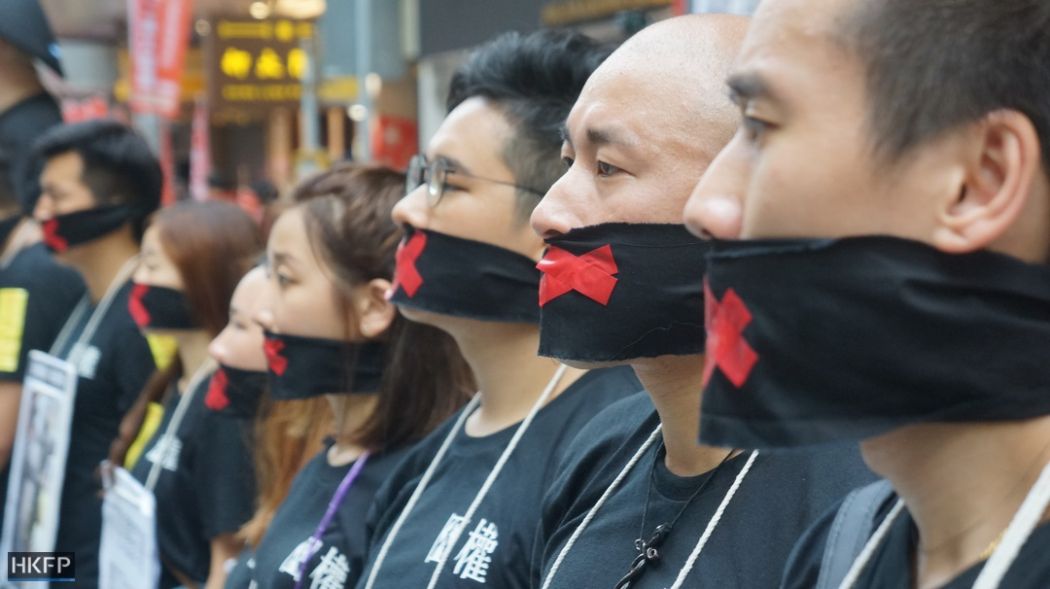
What follows is a list of incidents that have occurred over the past four years. I suspect it is far from exhaustive. If you know of other cases of censorship, please report them and they will be added to the list.
The list goes back to the 2014 Umbrella Movement. Of course, there were incidents of censorship before the Umbrella Movement.
Especially in the months preceding the movement, as pressure built up, censorship increased dramatically. The postal service refused to deliver Scholarism’s flyers; the Leisure and Cultural Services Department denied use of Tamar Park to students on the climactic day of their class boycott. Ironically they were inspired to occupy Civic Square instead, thus triggering the Umbrella Movement, in a classic case of censorship backfiring.
But since then, censorship in Hong Kong has grown much more widespread and the number of incidents has increased. The Communist Party and Hong Kong government have made a concerted effort to impose a censorship regime upon the city, frequently invoking a vaguely defined “red line” and repeating “freedom of expression is not absolute” like a mantra.
But no one has ever been prosecuted for advocating independence or self-determination because there is no law prohibiting such advocacy; indeed, it is perfectly legal and in conformity with the Basic Law.
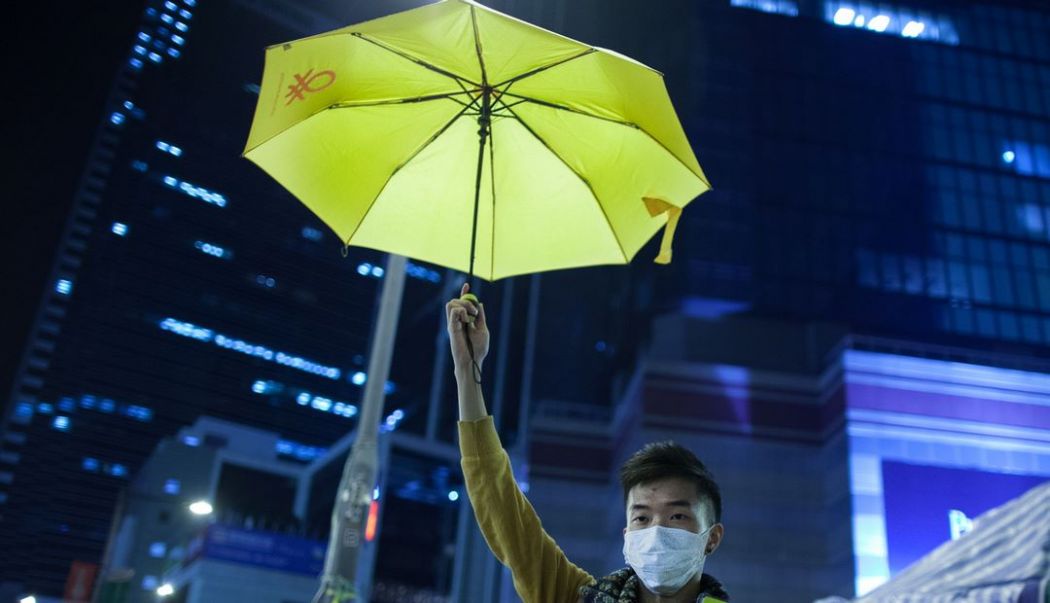
This list includes only clear-cut, discrete instances of political censorship. That means cases in which people have been prevented from saying something, or prevented from holding an event or a public gathering or otherwise associating, or punished for doing any of the above for clearly political reasons, or because of their political opinions or expressions, or when governmental authorities have used their power to condemn political expressions for the clear purposes of deterrence and intimidation.
As such, the list is by definition incomplete because censorship works, to a large extent, through creating an environment hostile to free expression and encouraging people to censor themselves. We will never know what might have been said or done if people had felt free to express themselves.
Less clear-cut forms of censorship go on all the time and are arguably the most pervasive and problematic. The Communist Party’s Liaison Office owns at least an 80 per cent market share of book distribution and retail in HK, including 51 bookstores. These bookstores do not carry books politically disagreeable to the Party.
A substantial portion of the media is owned by Party allies. In annual reports by the Hong Kong Journalists Association, journalists have year-after-year reported widespread self-censorship in the media. Art from the Umbrella Movement has not found a home in any official institutions in Hong Kong and instead has had to seek sanctuary abroad.
Since the Umbrella Movement, I have probably participated in more demonstrations the police have declared “unlawful” than ones they didn’t, either because demonstration organisers refused to apply for a notice of no objection from the police in order to protest the fact that the Public Order Ordinance doesn’t meet international standards for guaranteeing the right of freedom of assembly, or because the police arbitrarily declared a spontaneous gathering unlawful.
In most cases, the police do not make arrests but warn that they may. This practice has a significant negative effect on freedom of assembly as it sends the signal that it is dangerous to demonstrate and you could be arrested, deterring people from coming out.
The incidents of censorship itemised here are like canaries in the coal mine, bellwethers, the tip of the iceberg. One suspects there is much more beneath the surface.
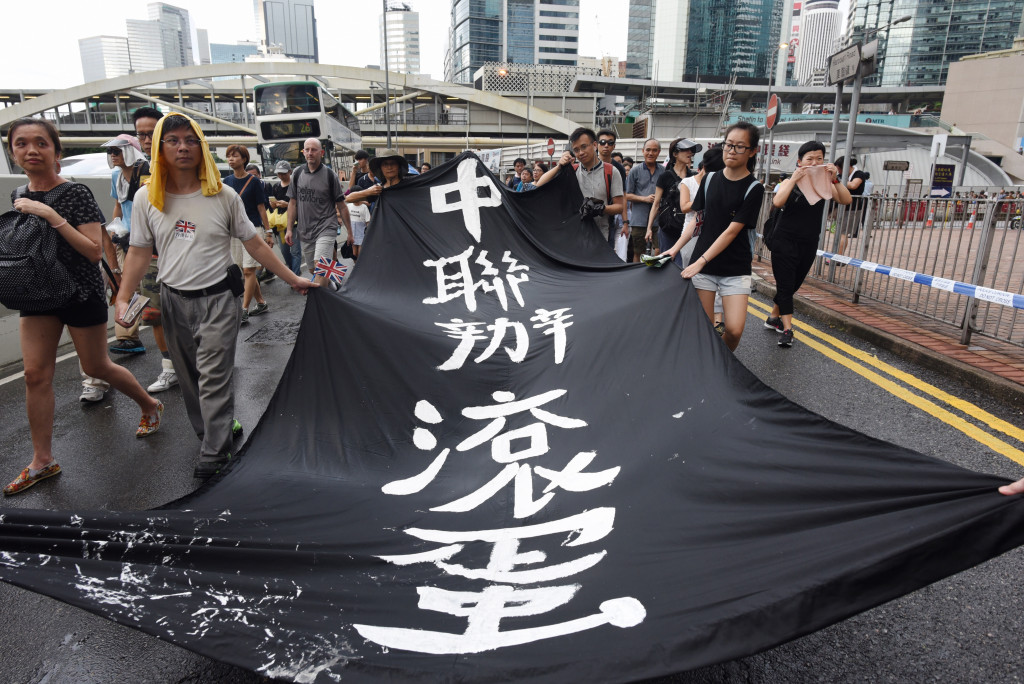
Both systemic censorship (Party control of the book industry, for example) and discrete incidents of censorship (for example, the bookseller detentions) “ripple outward”, having widespread effects that largely go unreported. Most forms of censorship never reach the surface because they are standard practice.
A striking number of the cases of censorship itemised below only came to light because institutions reversed initial decisions to allow an event to occur or adopted a new censorious policy.
The detention of five Hong Kong booksellers on the mainland in late 2015 is widely perceived to have sent a chill through the Hong Kong book industry. Highly reputable publishers such as Bao Pu — best known for publishing Zhao Ziyang’s memoirs and for deciding not to publish Li Peng’s after Party intervention — have moved their publishing operations elsewhere.
The fact that so much of the book industry is controlled by the Party meant that I didn’t even try to find a city-wide book distributor for my Umbrella: A Political Tale from Hong Kong or to get it into bookstores.
Also not included in the list are instances of restrictions on largely non-political expression. Buskers and street performers have recently been banned at Mong Kok and Times Square, part of wide-ranging attempts by the government and property developers to more tightly restrict the use of already inadequate public space in a crowded city.
These efforts have a negative impact on people’s ability and opportunity to fully exert their freedom of expression and are part of the increasingly censorious environment in HK.
The inclusion of some of the items on the list may be controversial. To take one example, six newly elected pro-democracy Legislative Council members were disqualified in October 2016 for their expressions during the Legco oath-taking ceremony. They were removed from office over what they said and how they said it— a clear case of censorship.
This incident also shows how closely the right of freedom of expression is often related to other rights, such as freedom of belief and opinion, the rights to vote, to run for election, and to be elected and hold public office, and the right to participate in government. In other cases, it is closely linked to the rights to freedom of assembly and of association.
Likewise, the barring of candidates from running for public office on political grounds both punishes their previous expression of political beliefs and infringes upon their right of freedom of expression. In all these cases of censure resulting in legal action being taken to punish or prevent expression, the victims’ expression was not explicitly prohibited by law and the victim had broken no law.
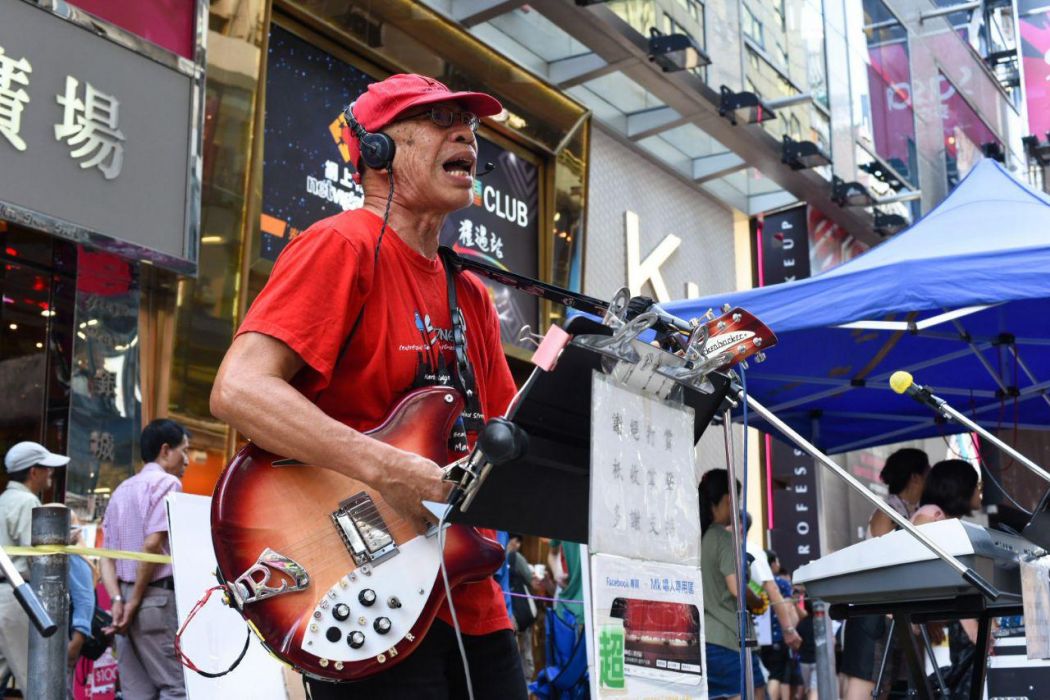
Given that Basic Law Article 39 states, “The rights and freedoms enjoyed by Hong Kong residents shall not be restricted unless as prescribed by law,” governmental authorities have had to adopt “creative” means to prevent and punish political expression which is not explicitly prohibited but which they deem unacceptable.
One of the striking aspects of post-Umbrella censorship is the sheer number of ways the Hong Kong government has employed to censor— disqualifications from Legco, barrings from elections, a ban on a political party, gross intimidation of the press, compelling semi-independent governmental departments and agencies and public universities to censor, use of arcane and rarely used laws, and aggressively pursuing cases in the courts with the help, in one case, of intervention by the Communist Party in the form of an “interpretation” of the Basic Law.
In pursuit of its censorship aims, the government has damaged rule of law, the independence of the judiciary, the civil service and academic freedom and compromised the only free elections HK had. As the list below shows, not only governmental authorities are censorial. Many of us censor ourselves in our daily lives, and in doing so, condition ourselves and others to do so.
In regard to the “Beneath Lion Rock” episode itemised below, it was hotels and actors that decided not to cooperate with the programme, effectively censoring themselves and making it more difficult for the programme to be completed. Often in the past four years, well-meaning people have warned me, “be careful what you say.”
A very important way to resist censorship is to refuse to censor ourselves and others, to check ourselves whenever we do, and to support others who freely express themselves, especially if they get into trouble for doing so.
An analysis of the cases
There are 35 entries below related to 57 different incidents of censorship. For example, the disqualification of six pro-democracy Legco members is one entry involving six cases. Other entries that contain more than one case are the detained booksellers, the censoring of election materials, the barring of election candidates (in three different entries), the censoring of the word “national” in reference to Taiwan universities in government flyers, and the censoring of independence advocacy on university campuses.
The ‘sensitive’ topics
Topics were: independence (20 cases), criticism of the Communist Party (16), pro-democracy (10), self-determination (6), Taiwan-related (4), anti-corruption (2), criticism of Chief Executive (1)
Some of the cases are borderline. For example, why exactly was the “Countdown Machine” censored? Presumably, because it coincided with the visit of Party leader Zhang Dejiang. Therefore, I classify it under “criticism of the Communist Party”.
Joshua Wong was barred from appearing at Asia Society before official criticism of his party Demosistō’s self-determination stance really ramped up; therefore, this case is classified under “pro-democracy”.
Benny Tai mentioning independence in Taiwan is one of two cases classified in two categories, “independence” and “Taiwan-related”, though it could also be classified under “pro-democracy”, since essentially what the government and its allies were doing was signalling to moderate pro-democracy leaders like Tai that they too are fair game.
The other double-categorised case is the Chief Executive threatening Apple Daily with legal action over an article about an allegedly corrupt business deal he was involved in, under both “criticism of Chief Executive” and “anti-corruption”.
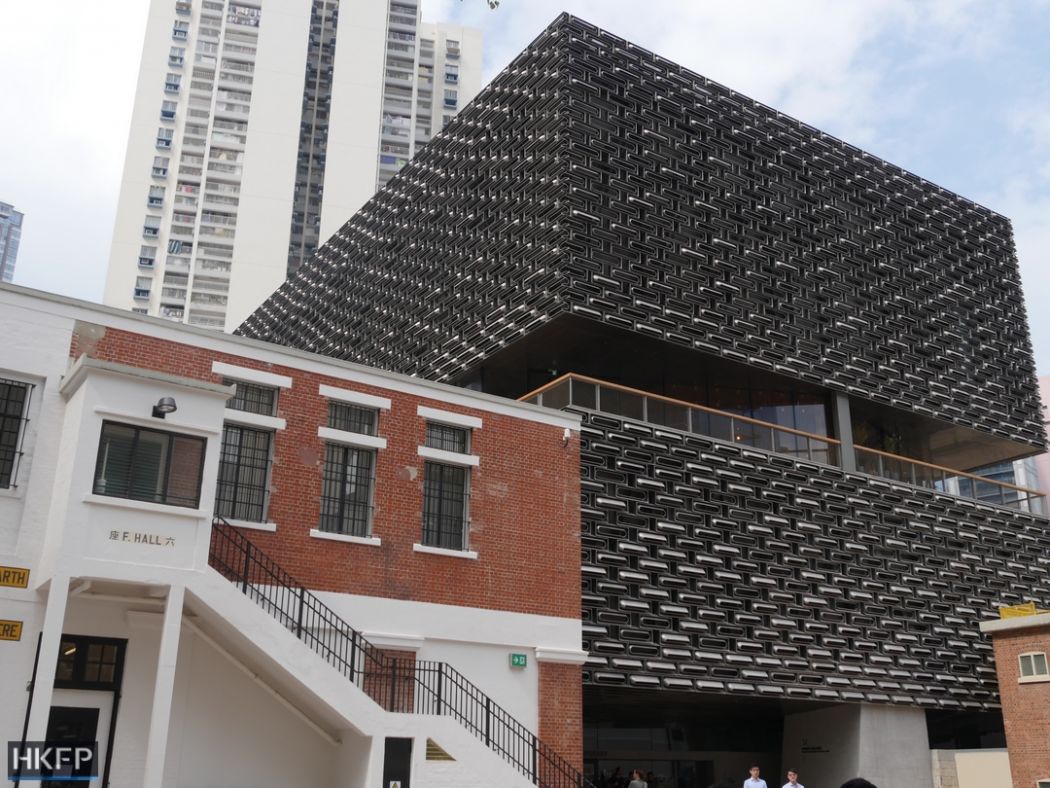
The censors
- The Hong Kong government — 26 cases, including specific agencies and departments, Electoral Affairs Commission (12), High Court (6), Leisure and Cultural Services Department (3), Chief Executive (2), Food and Environmental Hygiene Department (2), police (2), Companies Registry (1), Hong Kong Arts Development Council (1).
- The Communist Party and its agents — 12 cases.
- Arts and cultural institutions — 5 cases, including Asia Society (2), Hong Kong Arts Development Council, M+, and Tai Kwun.
- Universities — 4 cases, including specific instances at Baptist University, Polytechnic University and Chinese University.
- Businesses — 2 cases, including cinemas and hotels.
- Media — 6 cases, ViuTV, TVB, RTHK, Ming Pao.
- Venues and events — 2 cases, The Annex at Nan Fung Place, Yabuli Youth Forum 2018.
- Advertisers — 1 case, Lancôme.
- United Nations — 1 case.

Direct victims
I say “direct victims” because, ultimately, all Hongkongers are the victims.
- Politicians — 18 cases, including Lau Siu-lai (2), Nathan Law (2), James Chan (2), Edward Yiu, Leung Kwok-hung, Baggio Leung, Yau Wai-ching, Agnes Chow, Joshua Wong, Eddie Chu, Edward Leung, Ventus Lau, Alice Lai, Yeung Ke-cheong, Nakade Hitsujiko.
- Political parties — 15 cases, including Demosistō (6), HK National Party (4), Youngspiration (3), League of Social Democrats (2).
- Artists and artworks — 9 cases, including Denise Ho (2), Ma Jian, Badiucao, “Beneath Lion Rock”, “Raise the Umbrellas”, “Countdown Machine”, “Ten Years”, “Right and Wrong”.
- Journalists — 6 cases, including RTHK (2), Apple Daily, Sing Pao, Victor Mallet.
- Businesses — 5 cases, the Causeway Bay Books booksellers.
- Academics and students — 5 cases, including Undergrad magazine, Benny Tai, Billy Fung, Wang Dan.
- Organisations and events— 4 cases, including Hong Kong International Literary Festival, Free Expression Week, Foreign Correspondents Club, Yabuli Youth Forum 2018.
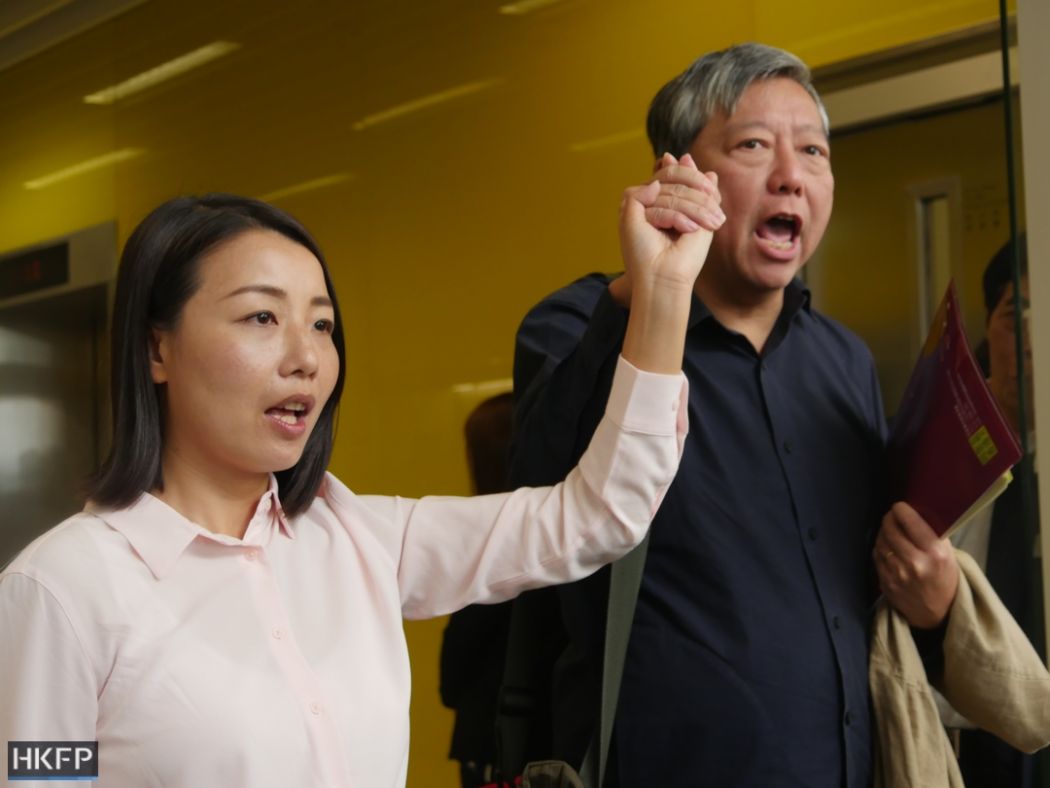
Patterns of abuse
The Hong Kong government is by far the biggest censor, doing much of the bidding of the Communist Party for it, but the Party itself has not hesitated to involve itself directly in censorship, despite the fact that according to the “one country, two systems” principle of a “high degree of autonomy” for Hong Kong, it is supposed not to interfere.
It has interfered by a variety of means, from the legal (unilaterally inserting an “interpretation” into the Basic Law so as to determine the outcome of a court case), to more frequent public statements by Party officials on a variety of Hong Kong cases (prohibiting those who call for an end to one-party dictatorship from running for Legco, Benny Tai, independence and self-determination advocacy, etc), to actually abducting people off the streets (HK bookseller Lee Bo).
Perhaps just as troubling as the fact that governmental authorities are the biggest censors is the extent to which a variety of other organisations and individuals have participated in the censorship, presumably not least due to (usually indirect) pressure from governmental authorities.
It should be emphasised, though, that in few of the cases of non-governmental censorship has the government actively told another entity to censor. In this respect, the case of the Andy Chan and the Foreign Correspondents Club is exceptional. Rather, these entities have “divined” the correct political position and acted of their own accord, presumably so as to stay on the good side of the authorities.
The conclusion is that the greatest threat to freedom of expression in Hong Kong is the combination of governmental authorities and non-governmental actors practising censorship, in turn encouraging society-wide self-censorship.
Notably, Ma Jian’s case is the only one of the 57 cases in which the censor, Tai Kwun, reversed its decision in the face of public criticism.
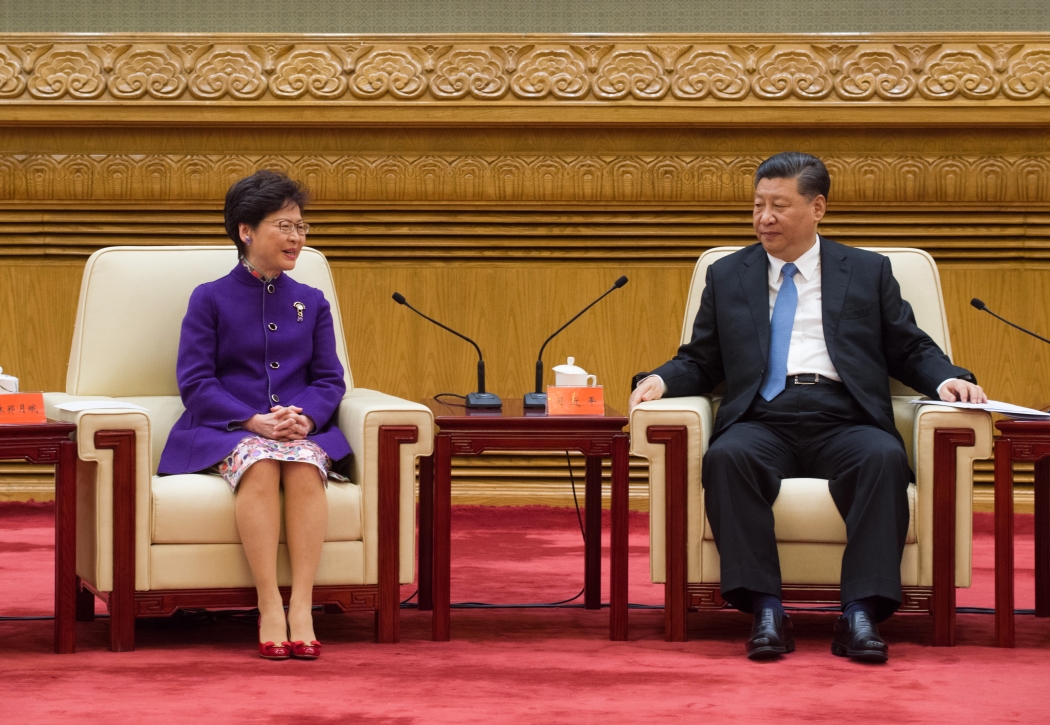
List of incidents of censorship
[in chronological order, starting with the most recent]
In the following list, I have erred on the side of caution. There had to be pretty strong and clear evidence to include an incident. All of the below incidents were reported in the media; most were reported widely.
I came across many borderline items. I found it especially difficult to evaluate reports of suspected censorship in the media, in particular having to do with removal of articles, discontinuation of regular columns and changing of editorial staff. These might have been politically motivated and censorious, or have had a censorious effect, but in many cases, that’s unclear.
Reported cases of censorship I have not included here are HK01’s publication, deletion and republication of an article on new information about the Tiananmen massacre, HK Economic Journal’s discontinuation of Joseph Lian’s column, the prohibition against online media at government press conferences (which was finally lifted in September 2017), threatening anonymous letters sent to Hong Kong Free Press, and SCMP’s deletion of an opinion column linking Xi Jinping with a Singaporean investor.
Ma Jian at Hong Kong International Literary Festival at Tai Kwun
- 10 November 2018, Censorship: Tai Kwun refuses use of its venue on grounds Ma Jian is too ‘political’; then the alternative venue, the Annex at Nan Fung Place also refuses use; Tai Kwun backtracks and agrees to hold events after public outcry.
- Censor: Tai Kwun and the Annex at Nan Fung Place.
- Outcome: The events are held, in the only clear case in Hong Kong of a censor reversing its decision, but a pall is cast over Tai Kwun and more broadly public cultural institutions in Hong Kong, and their commitment to freedom of expression is thrown into doubt.
Badiucao art exhibition at Free Expression Week, Hong Kong Free Press
- 2 November 2018, Censorship: Badiucao receives unspecified threats from Chinese authorities. He first decides not to come to HK to attend the exhibition for fear for his safety. Then the exhibition is cancelled entirely.
- Censor: Chinese authorities.
- Outcome: The rest of Free Expression Week goes ahead as planned; HKFP announces it will be bigger next year.
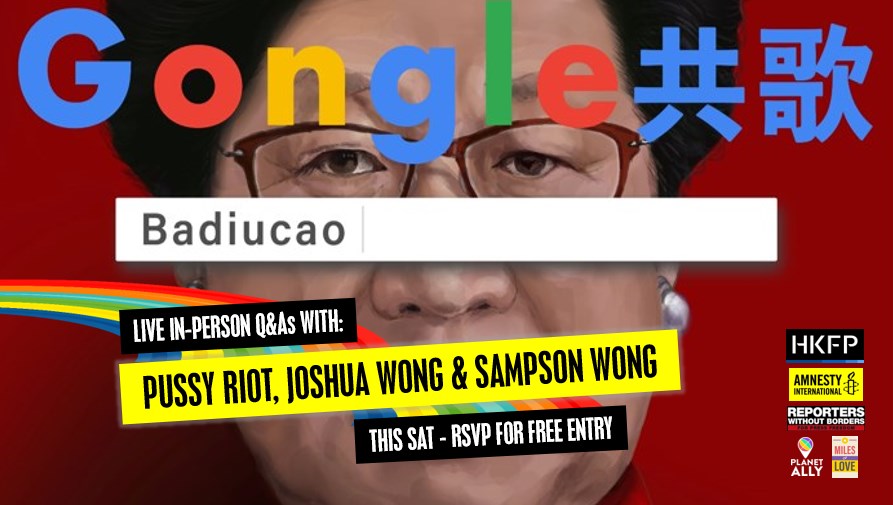
Lau Siu-lai barred from running for November Legislative Council by-election on political grounds
- 12 October 2018, Censorship: Electoral Affairs Commission bars Lau Siu-lai from running for Legislative Council by-election to fill a seat vacated by her previous disqualification in 2016. Its grounds are her previous advocacy of self-determination.
- Censor: Electoral Affairs Commission of HK government.
- Outcome: Lau is the 10th candidate in all to have been banned on political grounds, preceded by six in 2016 Legco elections and three in March 2018 by-elections. She probably would have won the seat which she won in 2016, when she was not disqualified even though she advocated self-determination then.
The moving goalposts are a clear sign of the Party and HK government’s shifting, arbitrary and hardening “red line”. The only free and fair elections in HK, for Legco geographical constituencies, have been substantially compromised by political screening, leaving probably at least one-fifth of the electorate effectively disenfranchised.
RTHK ‘Beneath Lion Rock’ episode about bookseller Lam Wing-kee’s return to HK after detention on the mainland
- October 2018, Censorship: Director reports hotels not allowing the programme to book a room for shooting, and actors changing their minds and declining to participate.
- Censors: Hotels and actors.
- Outcome: Indication of creeping self-censorship within the tourism and entertainment industries. The episode is aired on RTHK without incident.
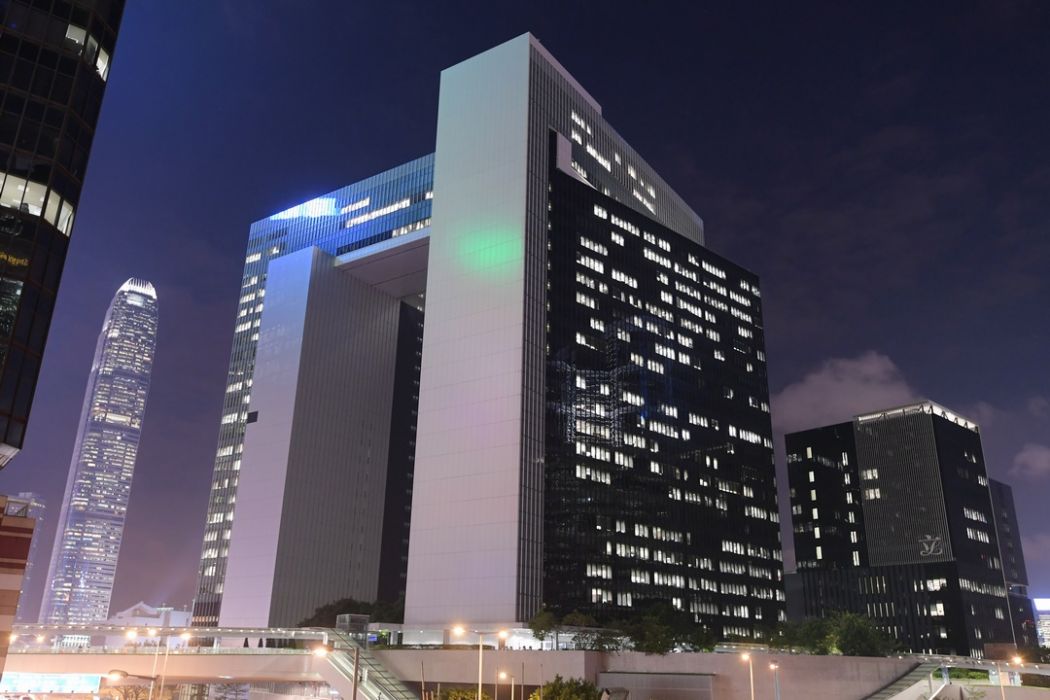
Demosistō submission to UN Universal Periodic Review of China’s human rights record
- September-November 2018, Censorship: Apparently at China’s request, The Office of the United Nations High Commissioner for Human Rights removed the submissions of Demosistō and six other groups from its stakeholder summary for the UN Universal Periodic Review of China, including Hong Kong and Macau. Eventually, it reinserted reference to the submissions of five of those groups, but not those of Demosistō and one other.
- Censor: Office of the UN High Commissioner of Human Rights, apparently at China’s request.
- Outcome: Demosistō and the other groups were effectively excluded from the UPR, by the Office of the High Commissioner for Human Rights, no less, even though that office in the past has continually stressed the importance of civil society participation. Doubt is cast on the independence and impartiality of that office, and there is suspicion that UN human rights mechanisms are being undermined by China.
Independence advocacy on university campuses
- September 2018, Censorship: Baptist University removes “politically sensitive” portions of student union president’s speech from programme for school year opening ceremony. Polytechnic University removes independence-related content from student union’s Democracy Wall, sparking protests and hunger strike.
- Censors: universities.
- Outcome: PolyU eventually comes to an agreement with student union to return to the previously agreed rules for Democracy Wall. The atmosphere for freedom of expression on university campuses worsens. Independence advocacy is driven further underground.
Talk by Andy Chan, head of HK National Party, at HK Foreign Correspondents Club
- 14 August 2018, Censorship: Communist Party and HK govt demand FCC cancel event.
- Censor: Communist Party and HK government.
- Outcome: Event goes ahead as planned. On 24 September, HKNP becomes the first political party ever to be banned in HK. On 5 October, news emerges that the work visa of Victor Mallet, vice-chair of FCC who hosted Chan’s talk, was not renewed. He becomes the first foreign journalist effectively expelled from HK on political grounds. On 9 November, Mallet was barred from entering HK.
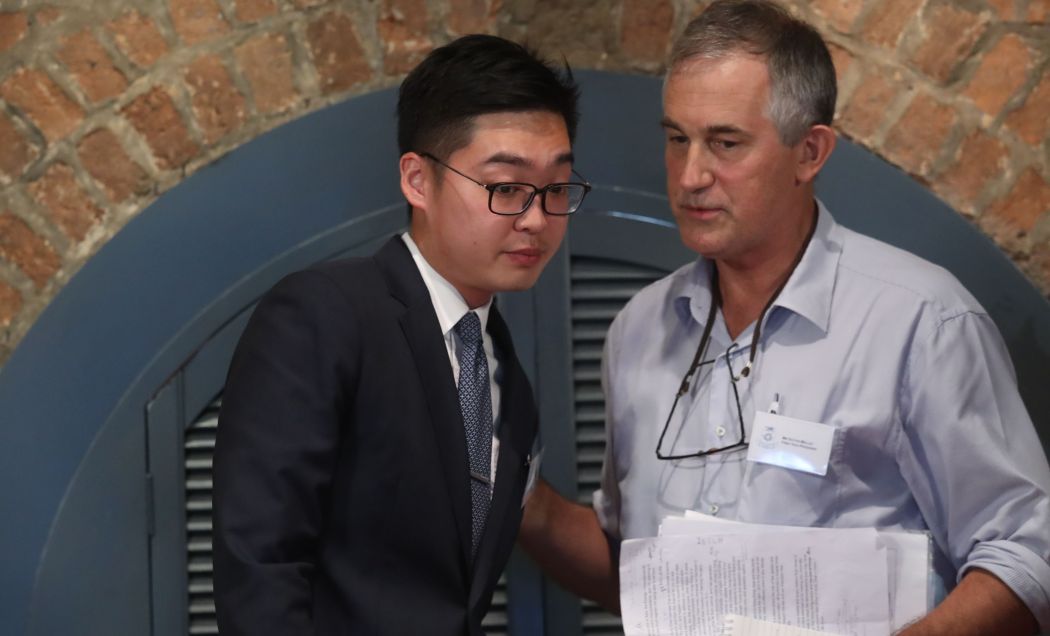
RTHK decides not to livestream Andy Chan’s talk at FCC
- August 2018, Censorship: RTHK director Leung Ka-wing orders that Andy Chan’s talk at Foreign Correspondents Club not be livestreamed, saying that “the station cannot provide a platform for Hong Kong independence.”
- Censor: Leung Ka-wing, RTHK director
- Outcome: The broadcaster was allowed to broadcast the talk, just not stream it live. I might not have included this incident except for the fact that the director’s reported reason for not allowing a livestream was clearly political and not having to do with, for example, the newsworthiness of the occasion.
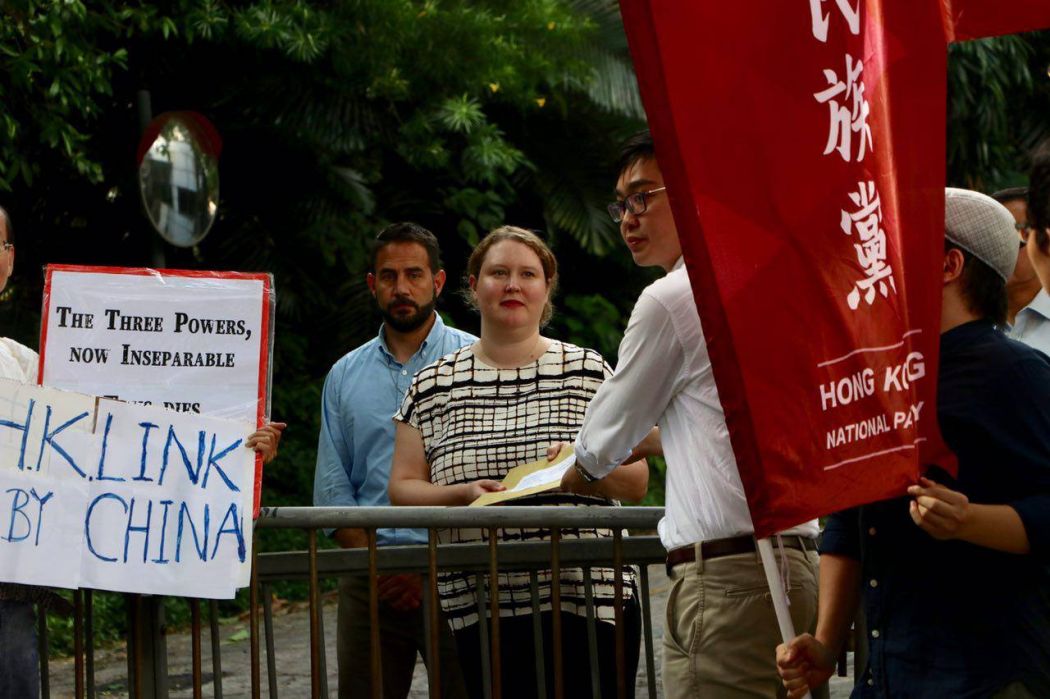
Yabuli Youth Forum 2018 tells journalists to let it vet reports
- June 2018, Censorship: A forum organised by a mainland think-tank tells journalists to sign a declaration giving the organisers the power to edit and approve their reporting on the event and not to report on some of the Party officials attending.
- Censor: Yabuli Youth Forum 2018.
- Outcome: Journalists publicise the censorship attempt.
Benny Tai speech in Taiwan
- April 2018, Censorship: The HK government leads a campaign against HKU law professor and former leader of Occupy Central, Benny Tai after a speech he gave in Taiwan. The Communist Party and Party allies in HK shrilly participate in this orchestrated condemnation. It falsely claims he advocated HK independence when in reality he had merely discussed the hypothetical possibility of HK independence if China one day becomes a democracy.
- Censor: HK government, Party and HK Party allies.
- Outcome: Though some critics called for Tai’s dismissal from his professorship at Hong Kong University, HKU has taken no action. Because Tai is known as a consummately moderate pro-democracy advocate in quite a traditional mould, the fact that he was singled out as an individual by the HK government for criticism over something he never even said was taken as a sign by the pro-democracy movement that the government may declare open season on anyone.
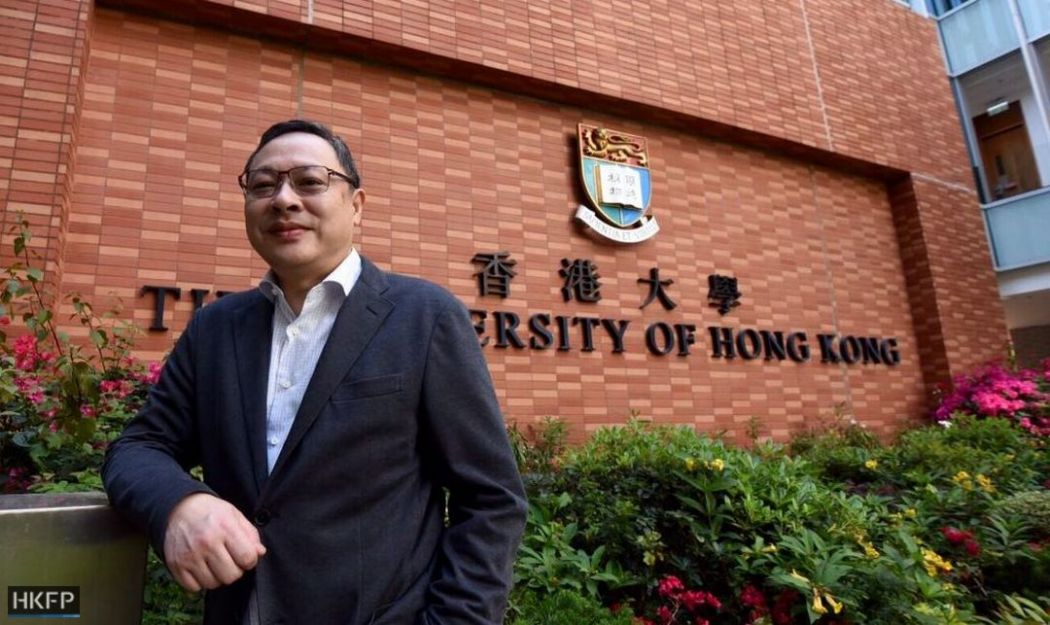
Calling for an end to one-party dictatorship in China
- March 2018, Censorship: Following changes to the Chinese constitution, HK National People’s Congress delegate Tam Yiu-chung and a Party official say candidates may be barred from running for Legco if they call for an “end to one-party dictatorship”, a common demand in HK.
- Censor: Former DAB Legco member and current NPC delegate Tam Yiu-chung and Chen Sixi, deputy director of Liaison Office in Macau.
- Outcome: No one has (yet) been barred on these grounds, but the statements cast doubt on the candidacy of Lee Cheuk-yan, a leader in HK Alliance, which organises the June 4 candlelight vigil and has always called for an end to one-party dictatorship.
This is part of a general trend of a variety of political opinions being deemed by the Party, the HK government and Party allies unacceptable for holders of elected public office, casting a pall of censorship over politics and of uncertainty over elections.
Lee Cheuk-yan is the replacement candidate for Lau Siu-lai, who was barred from running on grounds of her previous advocacy for self-determination. Increasingly, the suspense of these compromised elections is not who wins but which pro-democracy candidate manages to thread the needle of the acceptable.
Three candidates for March Legislative Council by-elections barred from running on political grounds
- January-February 2018, Censorship: Electoral Affairs Commission bars three candidates from Legislative Council by-elections, Agnes Chow, Ventus Lau and James Chan, who was also barred in 2016, Chow because her party, Demosistō advocates self-determination, and Lau and Chan because of supposed independence advocacy.
- Censor: Electoral Affairs Commission of HK government.
- Outcome: In 2016 and 2018, nine candidates in all have been banned on political grounds.
Agnes Chow probably would have won a seat. She was running to replace Nathan Law, who was expelled from Legco in 2016 right after winning the election for his expression during oath-taking. He was allowed to run for Legco though their party advocates self-determination, but Agnes was barred on those grounds, another sign of the shifting, arbitrary and hardening “red line”.
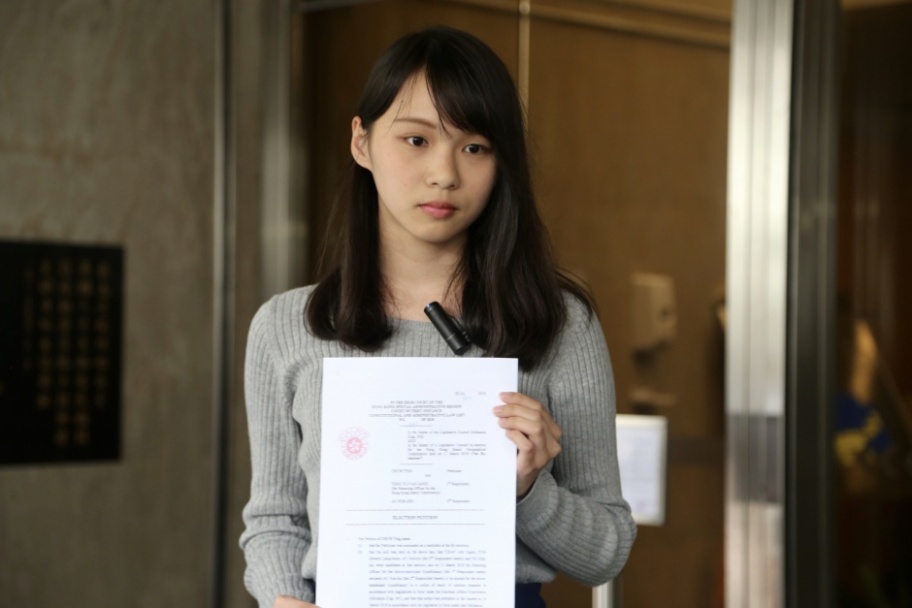
Demosistō application to register at Companies Registry
- January 2018, Censorship: HK government refuses to allow Demosistō to register as a company, issuing notice nearly two years after it had applied. It usually takes the registry a matter of a few days to respond to an application, one of the reasons HK often bills itself as the easiest place in the world to start a business.
- Censor: Companies Registry of HK government.
- Outcome: Demosistō is effectively denied legal recognition, making it impossible to set up a bank account in the party’s name and more difficult to accept funding. Its leader, Joshua Wong, has applied for judicial review of the decision. Some fear the government is moving towards banning the party altogether.
Six elected pro-democracy Legco members disqualified over oath-taking
- November 2017-July 2018, Censorship: The HK government brings legal cases against six newly elected pro-democracy Legco members over their oath-taking upon assuming office, Baggio Leung, Yau Wai-ching, Leung Kwok-hung, Lau Siu-lai, Nathan Law and Edward Yiu. In the middle of the trial of the first two, the National People’s Congress Standing Committee passes an “interpretation” of the Basic Law that virtually compels the High Court to disqualify them.
- Censor: Communist Party, HK government and High Court.
- Outcome: Free and fair elections and the rights of voters and candidates have been significantly compromised. Lau Siu-lai is subsequently barred from running when she tries to regain her seat. Agnes Chow is barred from running when she tries to fill party fellow Nathan Law’s seat.
A pall is cast over expression of political opinions, in particular those advocating independence and self-determination. Baggio Leung and Yau Wai-ching lose their appeals. Leung Kwok-hung is awaiting High Court hearing for his appeal.
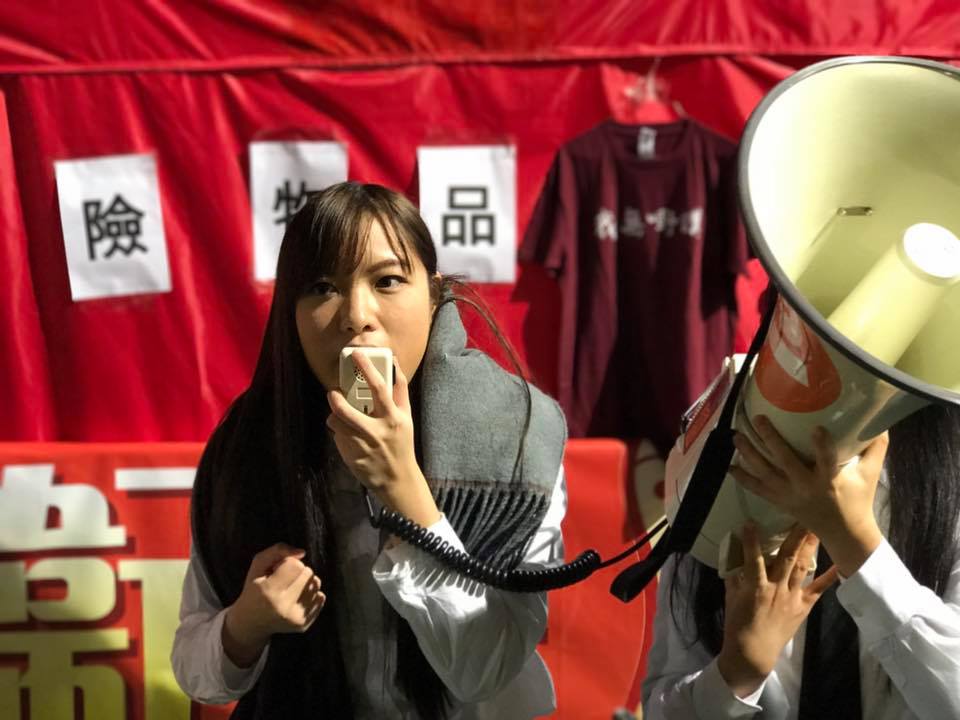
Independence advocacy on university campuses
- September 2017, Censorship: HK university heads issue joint statement condemning independence advocacy after anonymous banners appear on university campuses, especially at Chinese University. University officials threaten to remove them and students vow to prevent that.
- Censors: HK university heads, backed by HK government.
- Outcome: Independence advocacy continues but is driven underground and is often anonymous. At the start of the next academic year, more advocacy of independence occurs and there are more attempts by university authorities to prevent it.
TVB suspends political satire show during Xi Jinping visit
- July 2017, Censorship: Minutes before it is to air, TVB informs RTHK, producer of political satire show “Headliner”, that the programme will be postponed. Xi Jinping is visiting Hong Kong. Liu Xiaobo and views critical of Xi Jinping’s visit are in the programme. TVB says the show is postponed to make way for “breaking news”, but the news in question turns out to be a pre-recorded speech by… Xi Jinping, which other stations have already reported on earlier in the day.
- Censor: TVB.
- Outcome: RTHK lodges formal complaint against TVB. The show is aired after Xi Jinping leaves town.
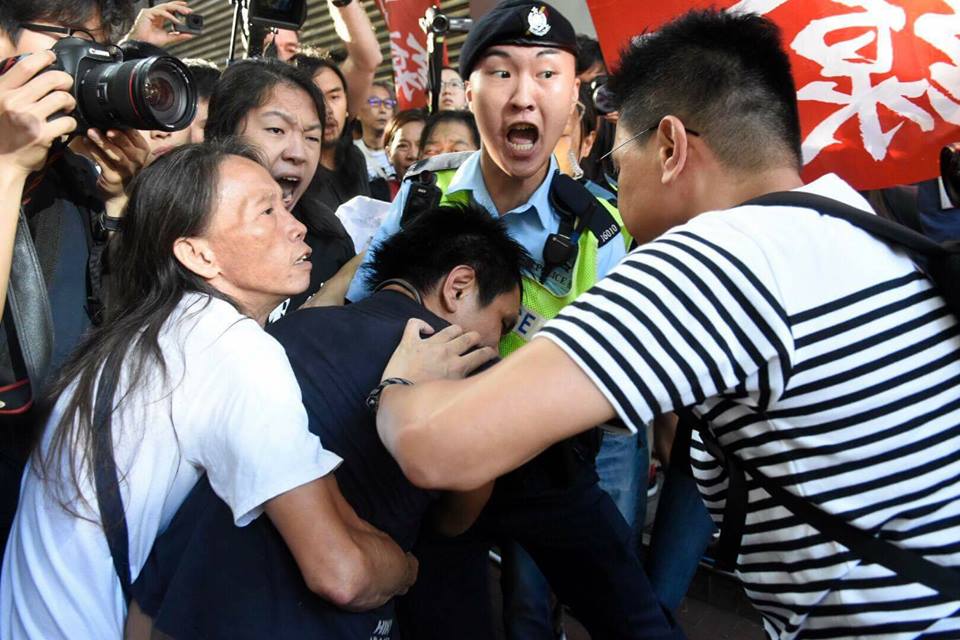
Joshua Wong at Asia Society Hong Kong
- July 2017, Censorship: Asia Society Hong Kong prohibits Joshua Wong from speaking as part of a book launch.
- Censor: Asia Society Hong Kong.
- Outcome: Event organiser PEN Hong Kong relocates the launch to the Foreign Correspondents Club. Asia Society headquarters in New York issues a statement distancing itself from Asia Society HK and ascribing the decision to a staff “error in judgment”, but this is the second event Asia Society HK has cancelled for apparently political reasons.
Demosistō and League of Social Democrats members prevented from marching to flag-raising ceremony
- July 1, 2017, Censorship: Demosistō and LSD members are first attacked by pro-CCP thugs and then 20 are arrested by police even though they are the victims of the attacks. They were attempting to march to the flag-raising ceremony marking the 20th anniversary of the handover where they intended to protest. Xi Jinping is in the city, and large numbers of police officers exert great effort to ensure no protester gets near him, essentially placing the area of the city around official venues under lockdown. There are many other smaller incidents that appear to restrict freedom of expression.
- Censor: Pro-CCP thugs and HK police.
- Outcome: All 20 pro-democracy protesters are released without charge. Police say they arrested the demonstrators “for their own safety”. Joshua Wong unsuccessfully tries to sue the police for unlawful arrest and injuries sustained while being arrested.
National Party prevented from holding demonstration
- June 30, 2017, Censorship: Police prevented the HK National Party from holding a public gathering to mark the 20th anniversary of the handover, even though the party tried to hold the gathering in two places in Tsim Sha Tsui that are far away from any venues where official commemorations are due to be held. It appears the mere fact of Xi Jinping being in the city means the National Party will not be allowed to appear anywhere in public.
- Censor: HK police.
- Outcome: National Party eventually finds a room to meet in at Baptist University, thanks to the student union there. This incident proves to be one of many steps taken by authorities to persecute the party, leading to a total ban on the party, the first time any political group has been prohibited from existing in HK.
Party agents threaten pro-CCP Sing Pao Daily
- February 2017, Censorship: After pro-Communist Party Sing Pao Daily publishes articles critical of HK Chief Executive Leung Chun-ying, CE candidate Carrie Lam, Party leader Zhang Dejiang and the Liaison Office, its website is attacked and its staff receive threats, which evidence suggests had to have come from Party agents.
- Censor: Probably Communist Party agents.
- Outcome: The incidents are reported to the police. The conflict is suspected to be a case of factional infighting within the Party. This is the only clear incident of a pro-CCP victim of censorship, but it was for a type of expression that is among the most commonly censored in HK, criticising the Communist Party.
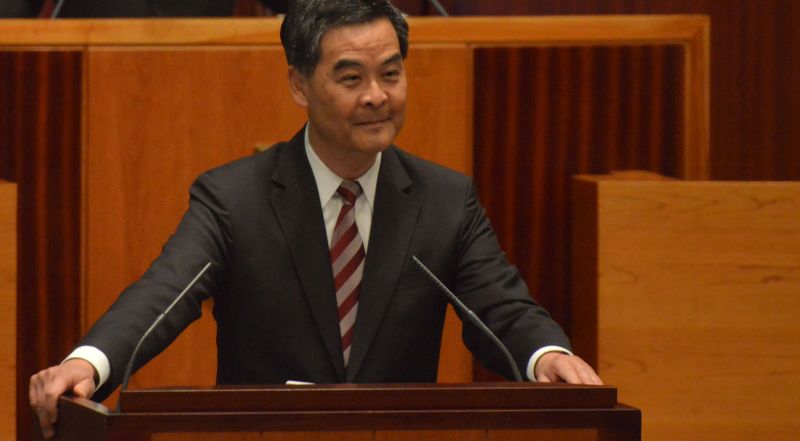
Youngspiration and Hong Kong National Party stalls at Victoria Park New Year fair
- 19 January 2017, Censorship: HK government terminates license agreements of two political parties led by young people, Youngspiration and HK National Party, for stalls at HK’s biggest New Year fair, claiming they would “very likely endanger public order and public safety”.
- Censor: Food and Environmental Hygiene Department of HK government.
- Outcome: Part of a government plan to deny use of public space and participation in government-administered events to groups it considers enemies.
Screening of ‘Raise the Umbrellas’ documentary at Asia Society Hong Kong
- November 2016, Censorship: Asia Society Hong Kong cancels the screening of “Raise the Umbrellas” – a documentary about the Umbrella Movement.
- Censor: Asia Society Hong Kong.
- Outcome: Along with cinemas dropping “Ten Years” in spite of its commercial success, this is part of a trend of venues refusing to show films related to “politically sensitive” topics. Independent HK filmmakers are increasingly left with options similar to those on the mainland, to show at universities and private screenings. It’s becoming easier to see “sensitive” HK movies at film festivals abroad than in HK.
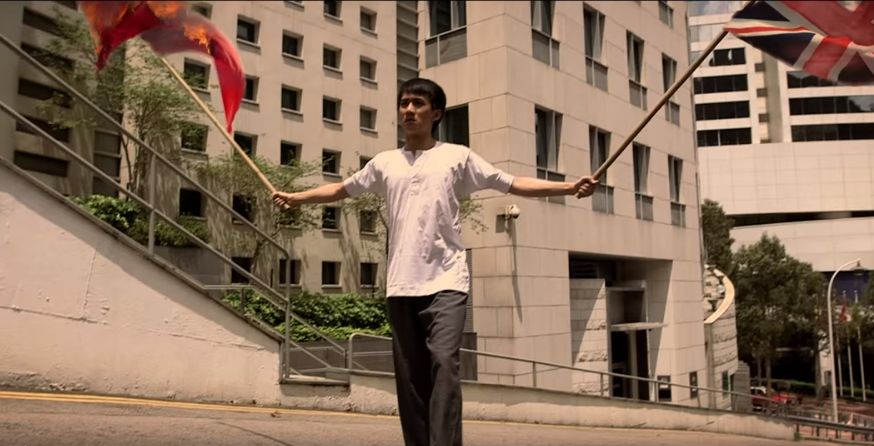
Billy Fung and Wang Dan on ViuTV’s ‘Travels with rivals’ show in Japan
- October 2016, Censorship: ViuTV cancels its episode of “Travels with rivals” featuring Fung and Wang after the two appear at the Foreign Correspondents Club of Japan and discuss HK independence, even though it was ViuTV itself that arranged the event.
- Censor: ViuTV.
- Outcome: The station later apologises for falsely accusing Fung and Wang of arranging the FCC talk themselves but reiterates “the station’s stance is clear that we do not allow anyone making speeches advocating Hong Kong independence on the channel.”
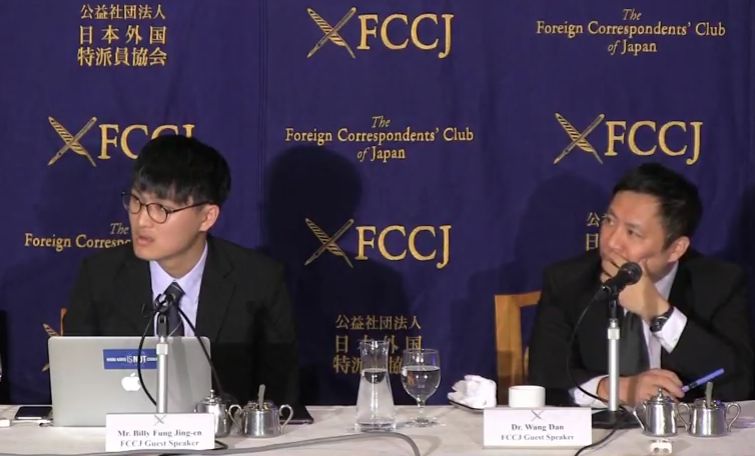
Chief Executive Leung Chun-ying threatens Apple Daily with legal action
- October 2016, Censorship: Chief Executive Leung Chun-ying takes the extraordinary step of threatening pro-democracy Apple Daily with legal action for publishing an editorial accusing him of corruption related to a murky business deal Leung was involved in before becoming CE. This is the first time a sitting CE has ever even threatened to sue anyone.
- Censor: Leung Chun-ying, head of HK government.
- Outcome: Leung does not eventually sue Apple Daily, but in March 2017 sues pro-democracy Legco member Kenneth Leung for defamation for claiming overseas tax authorities are investigating Leung in relation to the business deal. That case has yet to go to trial. After leaving office, Leung threatened to sue several others, all over alleged defamation.
Arguably, the incidence of attacks on Apple Daily has actually declined since the period directly before and during the Umbrella Movement. In those months, Jimmy Lai, the owner of Apple Daily, was assaulted and had his home firebombed and his email hacked, the paper’s production centre was picketed by pro-CCP protesters, and the paper had its deliveries destroyed at drop-off points around the city.
I wonder if the decline is related to Apple Daily’s defiant resistance to attempts to muzzle it. For example, see this video mocking Leung’s legal letter by putting Leung’s head on Pikotaro and having him dance a version of “Pen-Pineapple-Apple-Pen”.
Denise Ho on the mainland
- September 2016, Censorship: Chinese censors scrub Cantopop star Denise Ho’s music from the internet because of her participation in the Umbrella Movement and her support for democracy in HK.
- Censor: Chinese internet authorities.
- Outcome: HK entertainers, many of whom get a significant portion of their income from the mainland, are forewarned that supporting democracy in HK will kill their careers there.
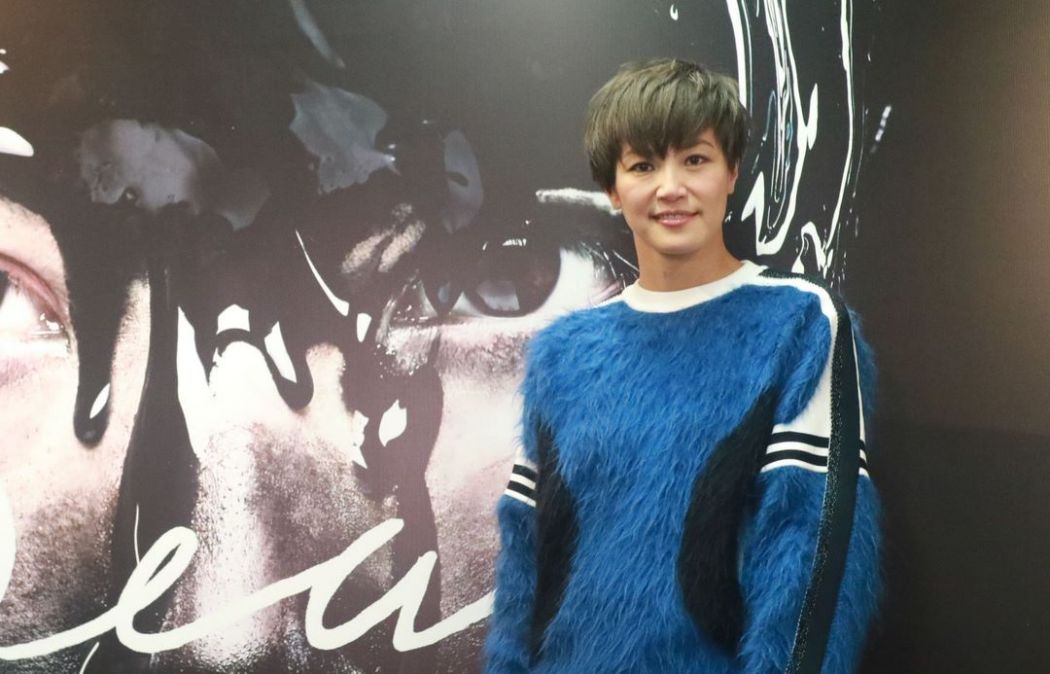
Legco election flyers of Nathan Law and Eddie Chu
- August 2016, Censorship: The Electoral Affairs Commission holds up approval of flyers by two Legco election candidates, both of whom advocate self-determination.
- Censor: Electoral Affairs Commission of HK government.
- Outcome: The candidates are forced to revise their flyers or face being ineligible for free postal delivery for Legco candidates. After he is elected, Nathan Law is disqualified from office over his oath-taking, and his party fellow is subsequently barred from running to fill his seat on grounds their party Demosistō advocates self-determination.
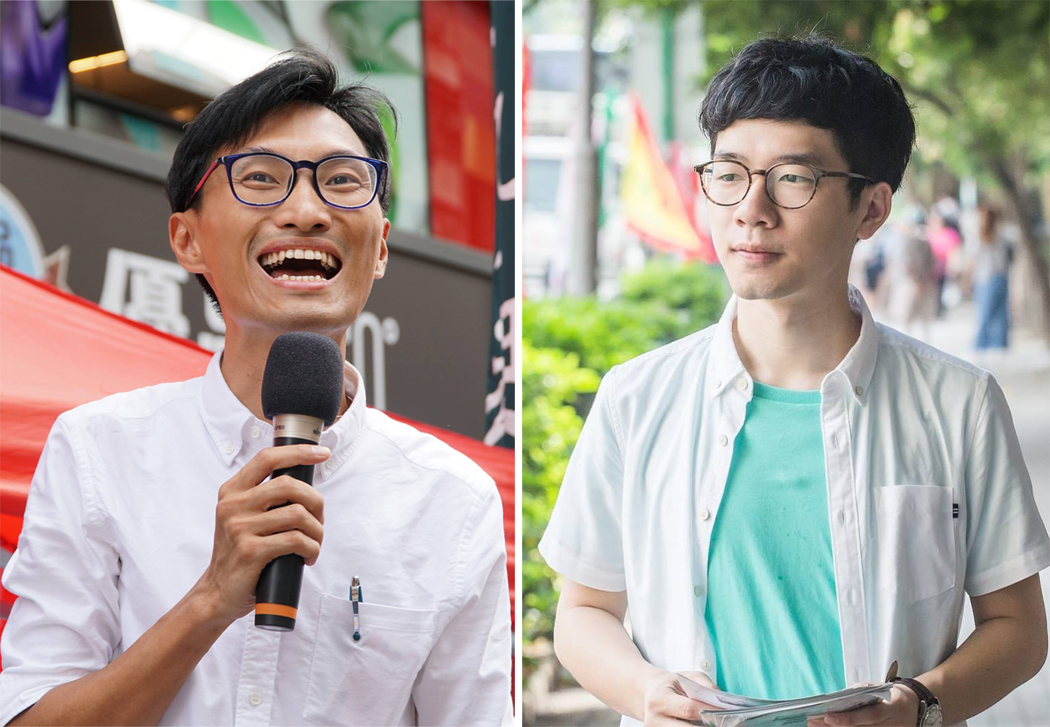
Six candidates for September 2016 Legislative Council elections barred from running on political grounds
- July-August 2016, Censorship: Electoral Affairs Commission bars six candidates from Legislative Council elections, Edward Leung, Andy Chan Ho-tin, Alice Lai Yee-man, Yeung Ke-cheong, James Chan Kwok-keung, and Nakade Hitsujiko on political grounds.
- Censor: Electoral Affairs Commission of HK government.
- Outcome: For first time ever, candidates are barred from running on political grounds. Edward Leung probably would have won a seat. The beginning of a string of barrings, now of ten candidates. The integrity and fairness of HK’s only free and fair elections HK are compromised, many say fatally.
Denise Ho and Lancôme
- July 2016, Censorship: Lancôme cancels a Denise Ho concert it was sponsoring after Global Times stokes online calls on the mainland for a boycott of her music for supporting democracy in HK.
- Censor: Lancôme.
- Outcome: In protest, Denise Ho goes ahead with a free concert on the streets of Sheung Wan, and 3,000 fans attend. HK entertainers are forewarned to avoid speaking out on any topic which might offend the Communist Party.
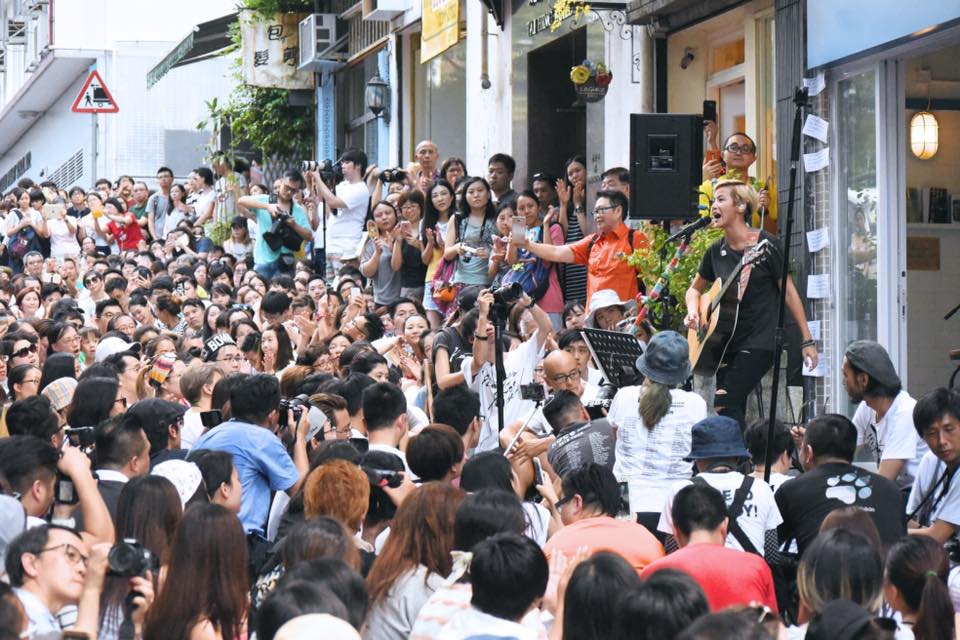
‘Countdown Machine’ on International Commerce Centre skyscraper façade
- May 2016, Censorship: Hong Kong Arts Development Council cancels the “Countdown Machine” installation on the facade of the International Commerce Centre as the third-ranking Communist Party member Zhang Dejiang is scheduled to arrive in Hong Kong. The “machine” counts down the time remaining before the “one country, two systems” arrangement is due to expire in 2047.
- Censor: Hong Kong Arts Development Council, a HK government agency.
- Outcome: Yet another cultural and arts institution in HK is considered compromised when it comes to its stance on freedom of expression on “politically sensitive” issues. A year later, the same building, ICC, displays this (uncensored) message on its façade: “Enthusiastically celebrate the 20th anniversary of Hong Kong’s return to the motherland.”

Ming Pao editor sacked after publication of Panama Papers
- April 2016, Censorship: Editor, Keung Kwok-yuen, was fired after Ming Pao published articles about the major global leak of the Panama Papers, which showed HK to be a major conduit for wealthy Chinese to get their money out of China as well as the biggest hub in the world of shell companies which appear to have money-laundering as their main purpose.
- Censor: Ming Pao. Reporters have said the decision was taken by Malaysian chief editor Chong Tien Siong, who is seen as pro-CCP.
- Outcome: Protests of hundreds against the action and a statement denouncing it from seven HK journalists organisations including Ming Pao’s own staff association. Ming Pao is also seen by many to have declined as a leading and authoritative voice in HK journalism. It is doubtful Ming Pao will collaborate in further ICIJ coalition investigations.
In February 2014, Ming Pao editor Kevin Lau was nearly chopped to death in a street attack in broad daylight. This happened weeks after ICIJ published “Leaked records reveal offshore holdings of China’s elite”, a report on which Ming Pao did collaborate.
Lau’s attackers were brought to trial and eventually given long prison sentences, but it was never discovered who ordered the attack or why. One wonders whether the paucity of investigative reporting in HK into corruption and the finance industry has anything to do with cases like this.
In Hong Kong journalism, almost nothing was produced as a result of the Panama Papers revelations.
HK government removes ‘national’ from names of three Taiwan universities in its ads for cultural events
- March 2016, Censorship: Leisure and Cultural Services Department deletes“national” from the names of Taiwan universities in three separate cases of leaflets advertising LCSD-sponsored events involving people from those universities.
- Censor: Leisure and Cultural Services Department of HK government.
- Outcome: There have been no reports since then of similar occurrences. Perhaps it was an overly worried bureaucrat.
‘Ten Years’, dystopian film about HK 10 years from now
- Early 2016, Censorship: Though wildly popular, outcompeting even the new Star Wars movie at the box office, and awarded “Best Film” at HK Film Awards, HK cinemas stop showing the film after it is criticised by Party-run media in China.
- Censor: HK cinemas.
- Outcome: Dozens of free public screenings are arranged throughout city. Party allies in film industry call for reform in how awards are given. HK filmmakers get the message that “edgy” films won’t be shown in cinemas.
Causeway Bay Bookstore
- 30 December 2015, Censorship: Five booksellers from Causeway Bay Bookstore specialising in publishing and selling books banned in China are detained on the mainland. One, Gui Minhai, is abducted from Thailand and another, Lee Bo, from off the streets of HK.
- Censor: Party agents.
- Outcome: Four of the five are eventually released. Gui Minhai is still in detention. Lam Wing-kee disobeys Party orders and speaks out about his detention when he returns to HK.
The incidents are widely regarded as having decimated the “banned book” business in HK and even those not specialising in that genre have been known to close down their business or move it away from HK. The incidents cast a chill over book publishing and for the first time give HK citizens the feeling that anyone could be snatched from the streets and spirited across the border.
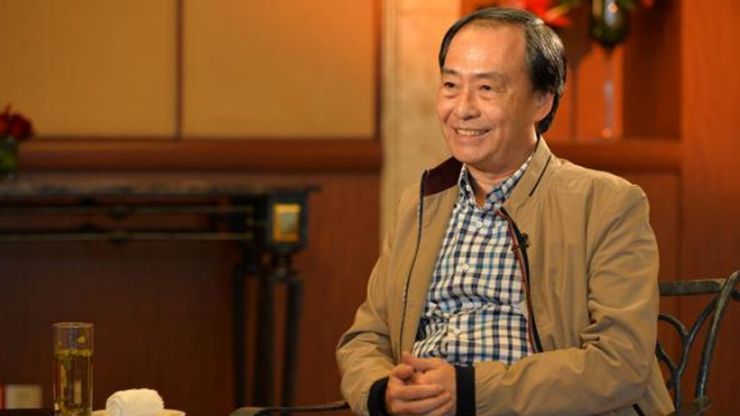
M+ museum exhibition of contemporary Chinese art
- December 2015, Censorship: The name of a touring art exhibition is changed from “Right and Wrong” to “M+ Sigg Collection: Four Decades of Chinese Contemporary Art” when it comes to Hong Kong, apparently for fear of a negative reaction by the authorities to the more strident original title.
- Censor: M+ museum, a governmental institution.
- Outcome: While apparently minor, and while “controversial” artists such as Ai Weiwei are still included in the show, the decision fuels on-going worries about the independence and courage of a new major cultural institution even before it opens.
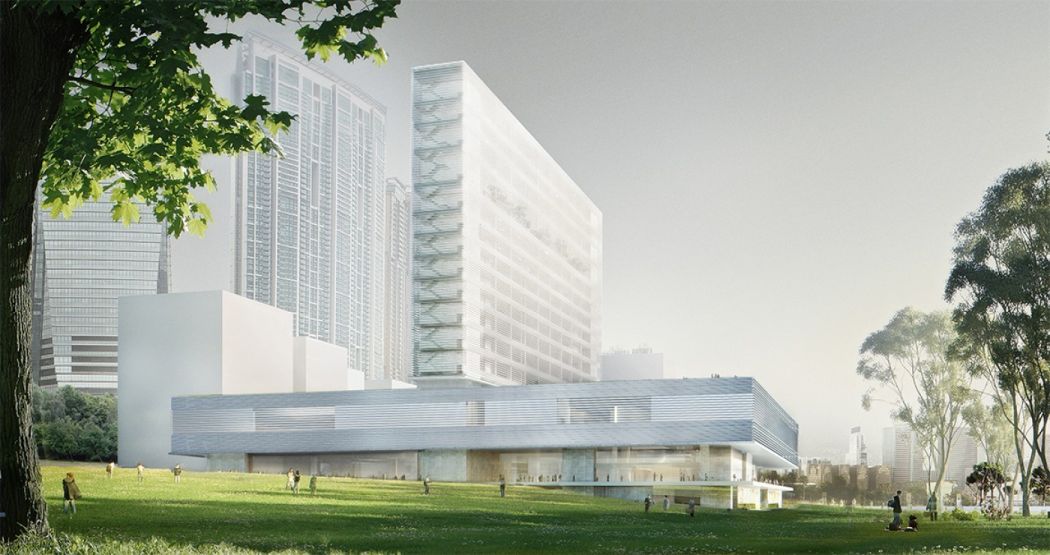
CE criticizes student union magazine in policy address
- January 2015, Censorship: Chief Executive Leung Chun-ying criticises Undergrad, the magazine of the Hong Kong University student union, in his annual policy address for “fallacies” related to a book it published called Hong Kong Nationalism and a cover story called “Hong Kong people deciding their own fate”. This is extraordinary: never before has a CE used a policy address to single out a student publication or organisation for criticism. It comes less than a month after the end of the Umbrella Movement, in which students played a major role.
- Censor: Chief Executive Leung Chun-ying, HK government.
- Outcome: No direct action has been taken against Undergrad, but in retrospect, this was the clarion call for attempts to restrict academic freedom and control universities, as well as to attack political speech deemed unacceptable to the Party and HK government.
This list will be regularly updated here. If you have incidents of censorship to report, please contact me on Twitter @kongtsunggan.
Other resources:
- Hong Kong Journalists Association annual reports.
- Press Freedom and Censorship page at Hong Kong Free Press.
